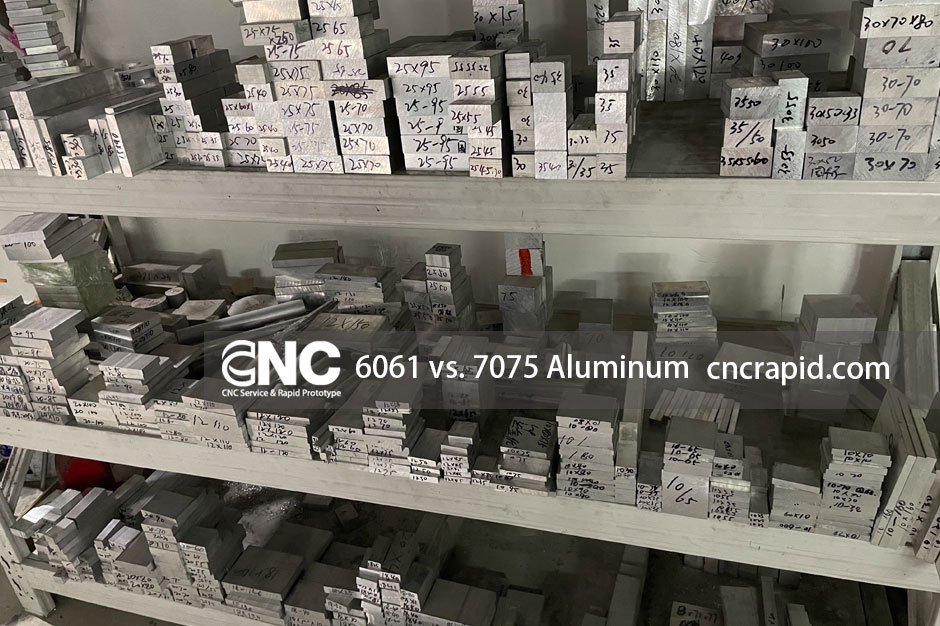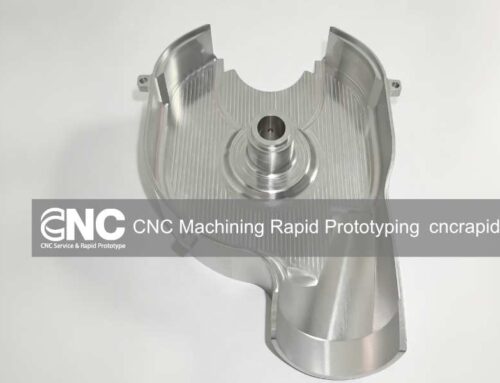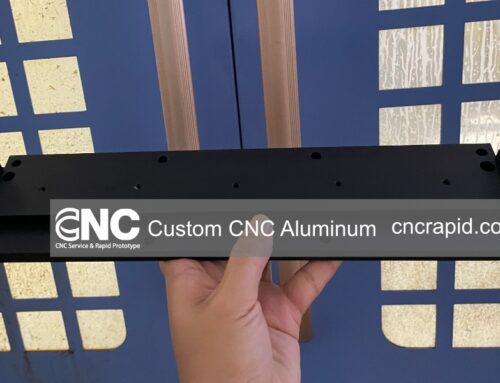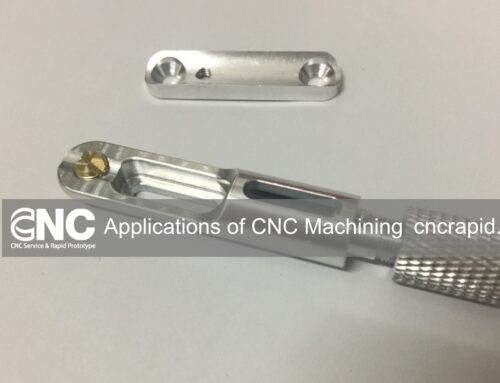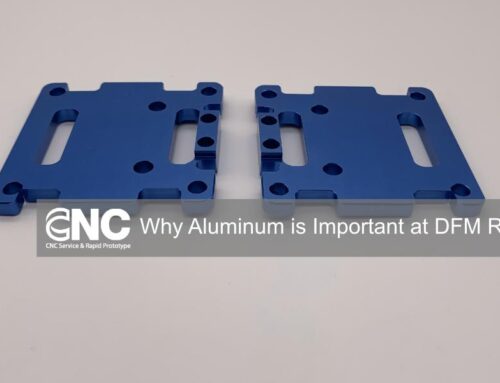Aluminum alloys are widely used in the CNC machining industry due to their excellent combination of properties such as high strength, low weight, and good machinability. These alloys are commonly used in a variety of applications, including aerospace, automotive, medical, and electronics industries. The ability to precisely machine aluminum alloys using CNC machines makes them a popular choice for manufacturing components with complex geometries and tight tolerances. Therefore, understanding the differences between various aluminum alloys and their properties is crucial for selecting the right material for a given CNC machining application.
6061 and 7075 are two popular aluminum alloys that are widely used in various industries, including CNC machining. The composition of these alloys plays a significant role in their properties and overall performance in CNC machining applications.
6061 aluminum alloy is composed of magnesium, silicon, and aluminum. This alloy is known for its excellent corrosion resistance and weldability, making it a popular choice for structural and architectural applications. It has good machinability and can be easily welded or brazed. It also exhibits good strength and toughness, making it suitable for high-stress applications.
7075 aluminum alloy, on the other hand, is composed of zinc, magnesium, and aluminum. This alloy has excellent strength-to-weight ratio, making it a popular choice for aerospace and high-stress structural applications. It is also known for its high resistance to fatigue and crack propagation. However, 7075 aluminum alloy is more difficult to machine compared to 6061 due to its high strength and hardness.
The properties of the 6061 and 7075 aluminum
- Strength: 7075 aluminum alloy has higher strength than 6061 aluminum alloy. Its ultimate tensile strength is 83,000 psi compared to 45,000 psi for 6061. This makes 7075 suitable for high-stress applications where strength is critical.
- Toughness: 6061 aluminum alloy has better toughness than 7075 aluminum alloy. This means it can withstand more bending and deformation before breaking. 6061 is a good choice for applications that require good toughness and durability, such as bicycle frames.
- Machinability: 6061 aluminum alloy is generally easier to machine than 7075 aluminum alloy due to its lower strength and hardness. However, both alloys can be machined using similar techniques, such as milling and turning, with the right cutting tools and speeds.
- Corrosion resistance: 6061 aluminum alloy has good corrosion resistance due to its high content of aluminum and silicon. 7075 aluminum alloy, on the other hand, is less corrosion-resistant due to its lower aluminum content and higher zinc content. However, both alloys can be further treated to improve their corrosion resistance.
- Weldability: 6061 aluminum alloy is more weldable than 7075 aluminum alloy due to its higher magnesium content. However, both alloys can be welded using appropriate techniques.
Applications of CNC machining for 6061 and 7075 aluminum
6061 and 7075 aluminum alloys are widely used in CNC machining applications across various industries. Here are some examples of applications for each alloy:
6061 aluminum alloy:
- Bicycle frames and components
- Marine parts, such as boat hulls and railings
- Automotive parts, such as engine blocks, transmission cases, and suspension components
- Medical equipment, such as MRI machines and surgical instruments
- Electrical enclosures and wiring systems
- Aerospace components, such as airplane wings and fuselages
7075 aluminum alloy:
- Aerospace components, such as aircraft frames, landing gear, and missile parts
- Sporting equipment, such as baseball bats and golf clubs
- High-stress automotive parts, such as drive shafts and wheel hubs
- Bicycle rims and components
- Tools and equipment, such as jigs and fixtures
- Precision parts, such as gears and bearings
How to choose the right material?
| Properties | 6061 Aluminum | 7075 Aluminum |
|---|---|---|
| Strength | Lower strength than 7075 | High strength and toughness |
| Machinability | Easier to machine than 7075 | More difficult to machine than 6061 |
| Toughness | Good toughness and durability | Excellent toughness and durability |
| Corrosion Resistance | Good corrosion resistance | Moderate corrosion resistance |
| Weldability | Good weldability | Poor weldability |
| Cost | Lower cost than 7075 | Higher cost than 6061 |
- Machinability: Choosing an alloy that is easy to machine can help reduce machining time, tool wear, and scrap rates. For example, 6061 aluminum is generally easier to machine than 7075 aluminum, which means that it may be a better choice for applications that require high production rates or involve complex geometries.
- Material properties: Selecting an alloy with the right material properties can help reduce waste by minimizing the need for secondary operations or rework. For example, if a part requires high strength and stiffness, choosing an alloy with those properties can help reduce the likelihood of deformation, cracking, or failure during machining or use.
- Cost: Choosing an alloy that is cost-effective can help reduce production costs by minimizing material costs, reducing machining time, and minimizing scrap rates. For example, 6061 aluminum is generally less expensive than 7075 aluminum, which means that it may be a better choice for applications where cost is a primary concern.
- Tooling: Choosing an alloy that is compatible with existing tooling can help reduce the need for specialized tooling and equipment, which can help reduce costs and improve production efficiency.
At DFM Rapid, we specialize in providing high-quality CNC machining services for a wide range of materials, including aluminum alloys such as 6061 and 7075. Our team of experienced machinists and advanced equipment enables us to deliver precise, consistent, and cost-effective solutions that meet the unique needs of our customers.
Whether you’re in the electrical, automotive, medical, or any other industry that requires precision machining of aluminum components, we have the expertise, resources, and commitment to quality that you can rely on. Contact us today to learn more about our CNC machining services and how we can help you achieve your manufacturing goals.
Contact us
If you need Metal & Plastic CNC Machining Parts for prototypes or production, please feel free to get a quote online.

Or email us at [email protected] to tell us About Your Project
Please try to include the following information:
- Part Name
- 3D Drawing
- Quantity
- Material
- Tolerance Range
- Surface Finish
Thank you for your time!

